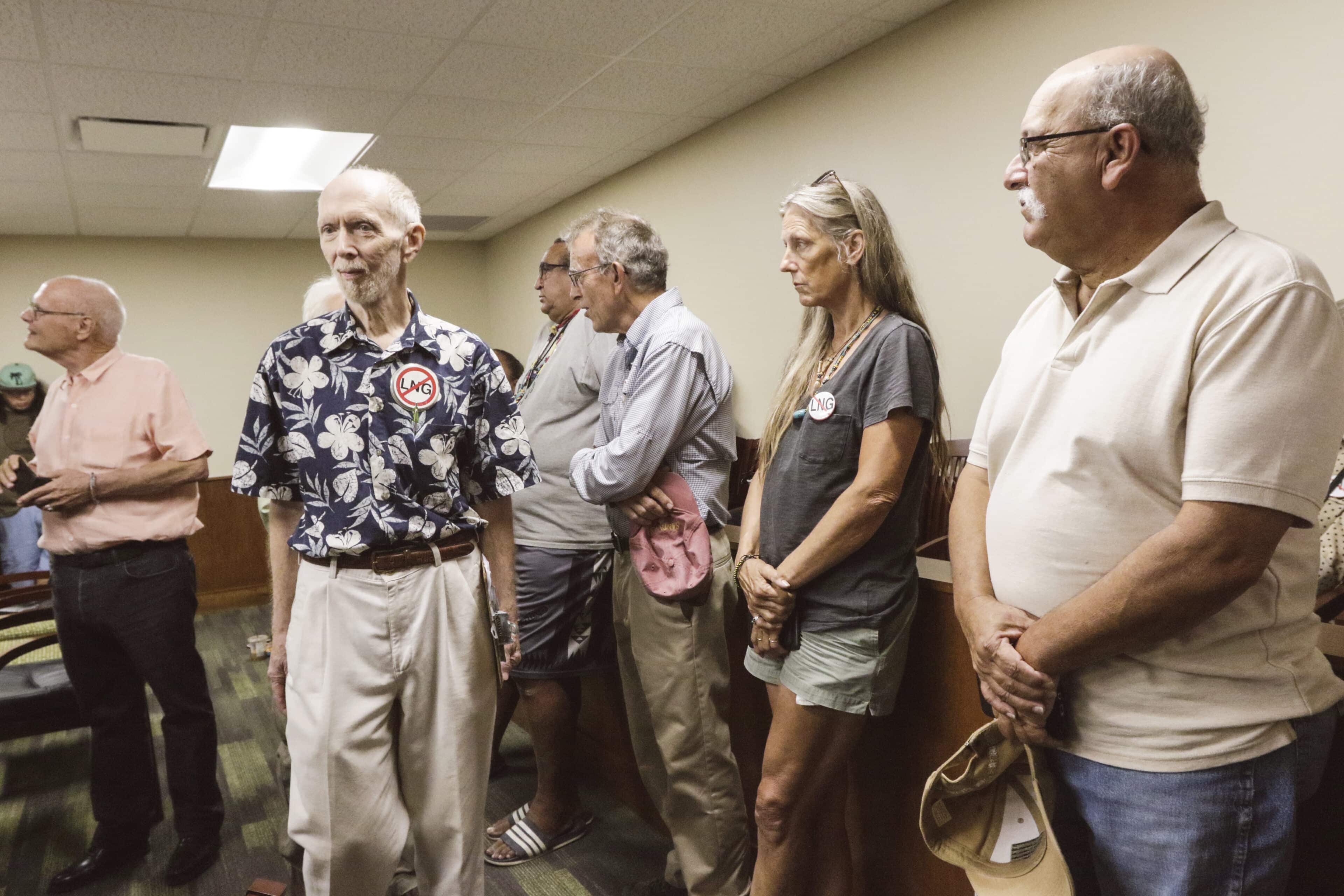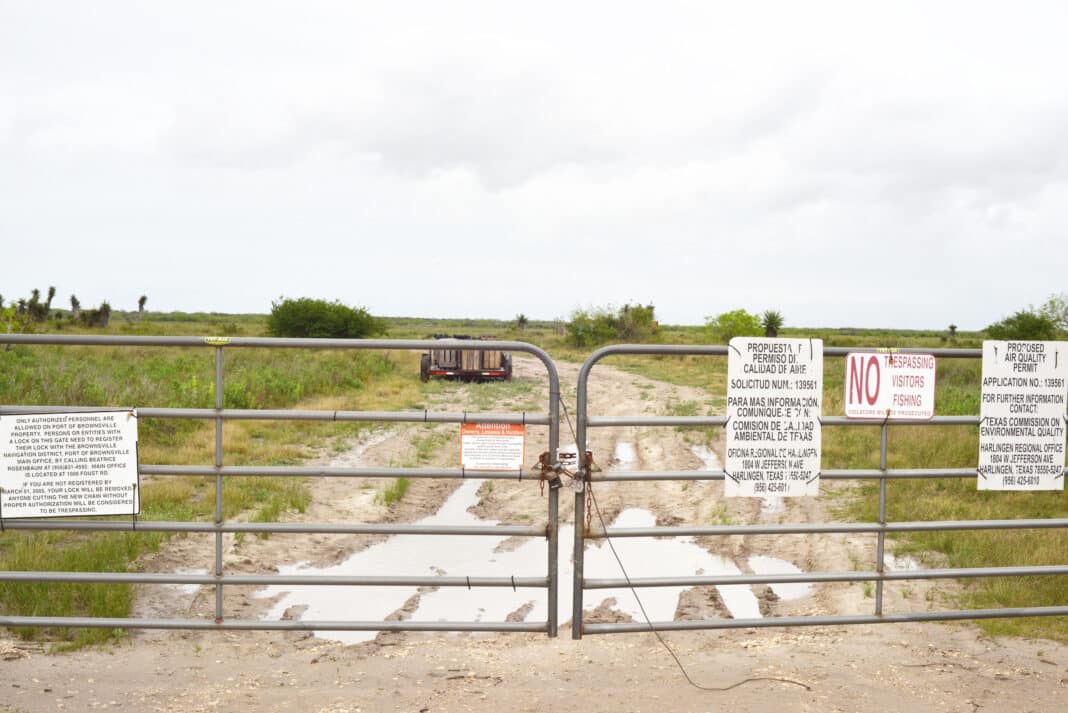Local environmentalists are celebrating after news broke Monday that Annova LNG — one of three liquefied natural gas companies seeking to build export terminals at the Port of Brownsville — announced it was shuttering the project before a single shovel had gotten in the ground.
The news came after nearly six years of efforts by Annova and the other two companies — Rio Grande LNG and Texas LNG — to gain regulatory permits, economic incentives and secure customers in order to construct the terminals at the port.
In a statement released on the company’s website, Annova LNG cited market conditions as the reason for pulling out of the project.
“Due to changes in the global LNG market, Annova LNG has announced the immediate discontinuation of its liquefied natural gas export facility under development in Brownsville,” the statement reads.
“The project had proposed building a 6.5 MTPA liquefied natural gas (LNG) export facility on the Port of Brownsville,” the statement further reads, referring to the company’s hope to produce 6.5 million metric tons of exportable LNG per year.
A letter the company submitted to the Federal Energy Regulatory Commission seeking to vacate the agency’s authorization of the project yielded no additional information about the decision. And attempts to gain comment from a spokesperson for the company have been unsuccessful.
LOCAL OPPOSITION
But for local environmentalists and leaders of the Laguna Madre communities that would have been closest to the proposed terminal, Monday’s announcement was a reason to celebrate.
“This is a victory. This is a major victory for all the communities that are against these terminals … who would have been forced to live downwind from Annova LNG (and) who have been challenging these projects for years,” said Rebekah Hinojosa, a Sierra Club organizer who has been protesting the terminals since their inception.
Hinojosa also previously served as a volunteer with a grassroots organization that rose up in opposition to the projects, Save RGV from LNG, which has since become an incorporated nonprofit under the name, Save RGV.
Both the Sierra Club and Save RGV have mounted multi-pronged strategies against the three companies, teaming up with local Indigenous groups, shrimpers, community organizations and — in some cases — local governments to stymie the projects.
They’ve held protests at public hearings, submitted formal public comments to every state and federal regulatory agency that has had a hand in the permitting process, and successfully lobbied domestic and foreign banks to dissuade their funding the projects.
The environmental groups have also launched a series of lawsuits in federal court, but they’re not the only ones who have.
Officials in Port Isabel were among the first representatives of local government to publicly oppose the projects.
It started in 2015 when the Laguna Madre Water District board voted to refuse to supply water to the projects should they submit applications for service. That was soon followed by votes from the city councils in Port Isabel, South Padre Island and Laguna Vista to publicly stand against the projects.
Port Isabel soon took the lead on that opposition, with City Manager Jared Hockema becoming the city’s voice at every meeting regarding the projects.
During a 2018 hearing hosted by the Texas Commission on Environmental Quality — the state agency tasked with approving air quality permits for the three companies — Hockema delivered a comment on behalf of the city in which he referred to the projects as “environmental racism.”
Speaking Thursday, Hockema reiterated that point and his belief the companies have only sought to profit from the Rio Grande Valley without any intention of keeping their promises.
“It was just a really tenuous, speculative business model and one that would have left us holding the bag,” Hockema said.
“And that’s so often the case with these folks that come in and ask for incentives. They want to come in there and make promises to … communities with economic distress and ask for really heavy handouts from the people that can afford it the least,” he said.

MONEY MATTERS
Indeed, both Annova LNG and Rio Grande LNG were both awarded substantial tax abatement agreements by the Cameron County Commissioners’ Court.
In October 2019, the commissioners’ court approved a $373 million tax abatement to Annova. The decision came four years after community opposition initially spurred the county to reject the incentives.
As part of the agreement, the company was to provide the county with $5 million for community projects, and an additional $500,000 payments in lieu of taxes for 10 years.
It remains unclear how much of those monies the company has paid to the county thus far. Messages to Cameron County Judge Eddie Treviño Jr. and Precinct 3 Commissioner David Garza — who both voted against the tax abatements — were not returned as of press time.
The county approved the agreements, in part, because the company promised to bring scores of high-paying jobs to the region, both during the construction and operations phases.
But beyond that, Annova also made big promises to the Brownsville Navigation District Board of Commissioners.
The company had teamed up with Rio Grande LNG to fund the deepening of the Brownsville Ship Channel — a long-held goal commissioners have sought to achieve.
Deepening the channel from its current 42-foot operational depth to 52 feet would expand the kinds of shipping business the port can accommodate.
Place 2 Commissioner John Wood said the two companies completed the engineering studies needed for the expansion prior to Annova’s announcement Monday.
Originally, the plan called for the two companies to pay for the deepening from the mouth of the channel to the site of the terminals near the Gayman Channel — some 13 miles worth of dredging with an estimated price tag of $200 million, Wood said.
After that, the port itself would be responsible for deepening the rest of the channel — from the terminals to the turning basin — another 4 miles at a cost of approximately $65 million.
Wood said the navigation district was saddened to see Annova halt their project, but remains optimistic that the remaining two terminals will come to fruition.
“We all, commissioners, all five of us, hated to see that happen. But we understand the economy. We understand the world economy,” Wood said.
“We’ll keep working to improve the opportunity for employment” at the port, he said.
But neither company would commit the funding for the channel dredging until they had secured their final investment decisions — something that could only happen once overseas customers sign contracts to buy the LNG.
Annova LNG could not secure enough buyers to start construction. And as of now, neither have Rio Grande LNG or Texas LNG.
For Hockema, the Port Isabel city manager, that fact proves the city’s assessment of the terminals.
“This was never a well-conceived idea. It was something that always had environmental issues, always had a lot of safety issues. And always had a very shaky economic case,” Hockema said.
“We were able to make them wait long enough by questioning what they were doing that their business model started falling apart,” he said.
Both he and Hinojosa said they will continue their fights against the remaining two companies in court and on the ground.
“We’re gonna continue pursuing it until all of them have been stopped and nobody will bring this idea up again,” Hockema said.





